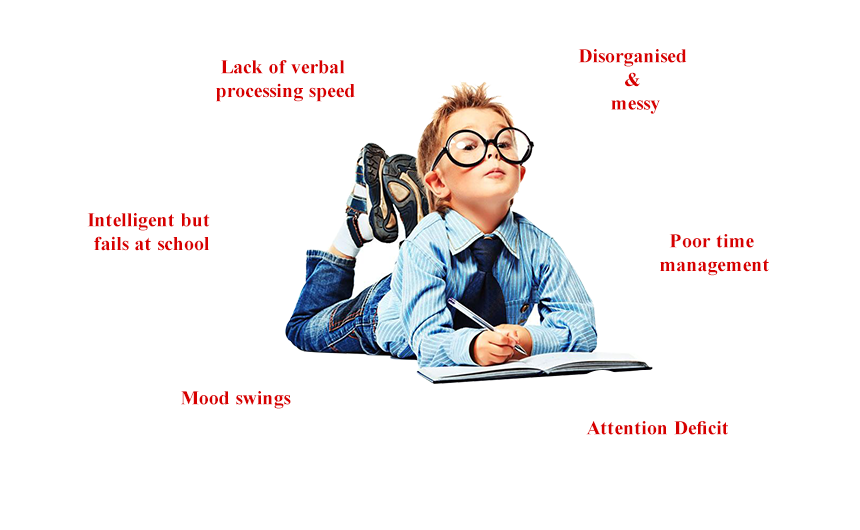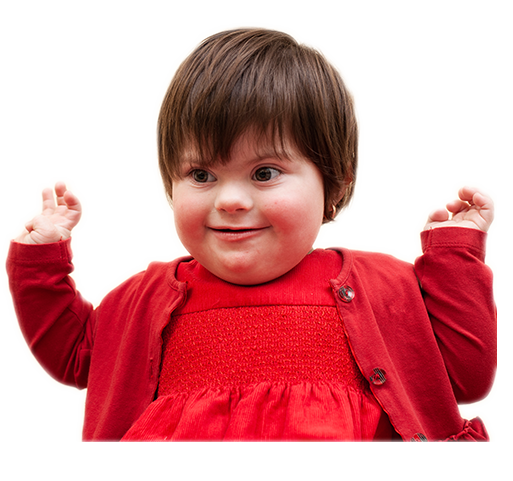

WHAT ARE LEARNING DISABILITIES (LD)?
They are neurological processing issues that interfere with the individual’s ability to store, process and produce information. Inabilities to listen, speak, think, read, write and perform mathematical calculations may be some symptoms of a learning disability and may be caused when the brain processes information and interprets it differently.
TYPES OF LEARNING DISABILITIES
-
Dyslexia – Learning difficulty that primarily affects the skills involved in accurate and fluent word reading and spelling.
-
Dysgraphia – Difficulty in writing, problems with handwriting, spelling & organizing ideas.
-
Dyscalculia – Math learning disability which impairs number related concepts.
-
Dyspraxia – Difficulty with fine and gross motor skills. Problems with eye – hand coordination, balance and manual dexterity.

AUTISM

Autism is a developmental disorder with symptoms that appear within the first three years from birth. It appears in different forms with varying levels of severity. Individuals with autism have their own unique strengths, symptoms and accompanying challenges. Autistic symptoms and behaviours may include:
-
Delay in speech
-
Reduced eye contact
-
Differences in body language
-
Lack of facial expressions
-
Sensitivity to sound or touch
-
Not engaging in imaginative play
-
Repeating gestures or sounds
-
Closely focused interests
-
Indifference to temperature extremes
ATTENTION DEFICIT HYPERACTIVITY DISORDER (ADHD)
Attention deficit hyperactivity disorder (ADHD) is a neurodevelopmental disorder characterized by inattention, or excessive activity and impulsivity, which are otherwise not appropriate for a person’s age. ADHD is one of the most common paediatric brain disorders often beginning during childhood and which can persist into adulthood.
Characteristic behaviours and symptoms of ADHD may include:
- Impulsive hyperactive behaviour
- Easily distracted
- Inattentive
- Constant fidgeting
- Acting without thinking (Impulsive)
- Excessive talking
- Unable to wait for their turn
- Interrupting conversation
- Trouble in completing tasks
- Unable to follow instructions

DOWN’S SYNDROME

Down’s Syndrome is a naturally occurring genetic disorder which causes a delay in cognitive ability and physical growth. It is typically associated with children having difficulties in attention, memory, understanding language and decision making. Individuals with DS are associated with medical issues.
Characteristic behaviours and symptoms of Down’s Syndrome may include:
-
Short attention span
-
Poor judgement
-
Impulsive behaviour
-
Slow learning
-
Delayed language development
INTELLECTUAL DISABILITY DISORDER
Intellectual Disability Disorder (IDD) is characterized by below average intelligence or mental ability and a lack of skills necessary for activities of daily living. People with Intellectual Disability Disorder (IDD) can learn new skills but they learn them slowly. They are gifted with a plethora of non-academic skills which may include the creative and fine arts.
Characteristic behaviours and symptoms of IDD may include:
-
Memory issues
-
Attention problems
-
Low social / communication skills
-
Low self esteem, self worth
-
Dependency on others
-
Require supervision / assistance for Activities of Daily Living (ADL)
-
Delayed development
-
Lack of understanding of rules pertaining to social behaviour

REGISTERED & RECOGNISED BY THE COMMISSIONER FOR WELFARE OF THE DIFFERENTLY ABLED BY THE GOVT. OF TAMIL NADU REGISTRATION NO. 685 / 2024
NIOS ACCREDITED CENTRE NO. M19103
DACAL is a school which caters to children with developmental delays, learning difficulties and special needs.
CONTACT US
DACAL - Darul Ansar Centre for Applied Learning
Anjuman-e-Himayath-e-Islam
#16, B.N. Reddy Road, Chennai 600 017.
Phone: 044 4901 4553, 98842 70480
Mon-Fri: 8:30 am – 3:30 pm